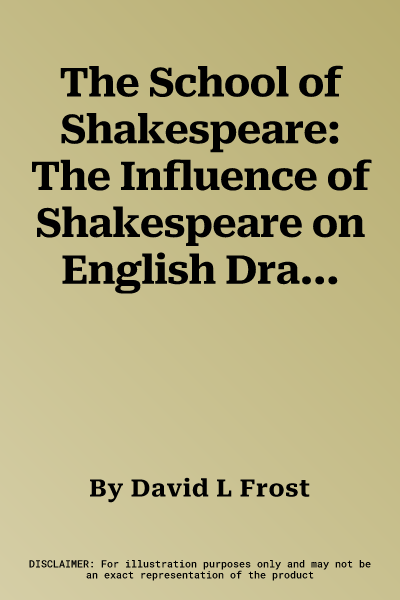'The Jacobean dramatists make better sense if seen as working in
Shakespeare's light'. This premise underlies Dr Frost's study of the
influence of Shakespeare upon his contemporaries. Certain writers -
Middleton especially - he shows to have been radically transformed,
while Webster and Ford reacted against the dominant tragic mode, and yet
exploited the master for their own purposes. Almost all Shakespeare's
successors were happy to lift an idea, a phrase, a character or a scene.
More important, Shakespeare's influence revolutionised two dramatic
forms, the revenge play and the romance. In removing an artificial
barrier that divided the isolated genius from 'the rest', this original
1968 publication illustrates Shakespeare's impact on his age, and
produces supporting evidence from records of publication, play
performance and contemporary comment to overthrow the long-held doctrine
of relative neglect. Dr Frost's interest in literary indebtedness is
critical as much as scholarly, while his discussion of the romance
offers an approach to Shakespeare's final plays. His general thesis is
challenging, and is likely to affect the readers' views on the history
of drama and of taste, as well as their estimate of the writers
themselves.

